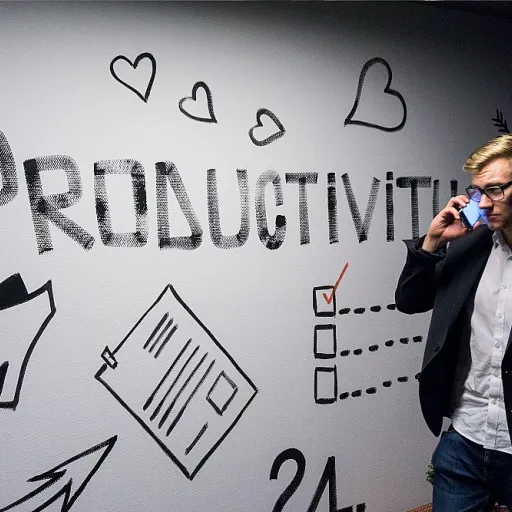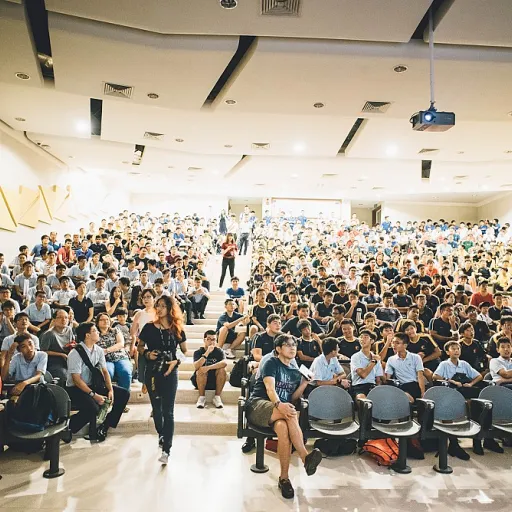
Understanding AI in Recruitment
Integrating AI in the Hiring Landscape
Artificial Intelligence (AI) has emerged as a transformative force in the hiring landscape, reshaping how recruiting software enhances the overall process. As businesses strive to attract and retain top talent, understanding how AI fits into recruitment becomes crucial. AI-powered tools are revolutionizing traditional hiring procedures by automating tasks such as interview scheduling, candidate screening, and data analysis. With automated workflows, hiring teams can efficiently manage the high volume of applications, ensuring that only the most qualified candidates reach the interview stage. Recruitment platforms equipped with AI capabilities offer remarkable insights by analyzing candidate data, which aids in making informed hiring decisions. The use of advanced ATS (Applicant Tracking Systems) simplifies the talent acquisition process, enhancing candidate experience while also optimizing time hire metrics. As AI continues to evolve, it fosters internal mobility. Companies can leverage AI to identify existing employee skill sets, encouraging the development of top talent within the organization without needing external hires. For job seekers, AI introduces a new layer to the hiring process. With the advent of video interviews and video interviewing platforms, candidates must adapt to the new dynamics of showcasing their skills and experiences digitally. To learn more about how AI is influencing roles, consider exploring navigating the role of a talent assistant in a digital marketing agency, which provides further insights into the integration of AI in recruitment strategies.Benefits of AI Hiring Software
Streamlining Recruitment Processes
AI hiring software has become a pivotal tool in the recruitment landscape, offering a multitude of benefits that enhance both efficiency and effectiveness. Among these advantages, companies can leverage AI tools to optimize their recruitment processes, making it easier to manage high volume hiring, schedule interviews, and evaluate candidates. AI-powered solutions significantly reduce the time and resources spent on candidate screening and selecting top talent. Automated workflows allow recruiters to streamline the hiring process, enabling them to focus on more strategic tasks like talent acquisition and internal mobility. Through these automated processes, hiring teams can also experience a better flow in their recruitment operations, reducing the time to hire and ultimately improving hiring decisions.Data-Driven Hiring Decisions
AI hiring tools enable organizations to make more informed hiring decisions by analyzing vast amounts of data with precision. These systems provide insights into candidates’ backgrounds, experiences, and skills, ensuring a more comprehensive evaluation compared to traditional methods. By leveraging data-driven decision-making, companies can enhance their ability to identify their top recruiting prospects from a diverse talent pool. Furthermore, AI systems can support in conducting video interviews and video interviewing, providing a more flexible option for busy candidates and recruiters. This adaptation not only appeals to the modern job seeker but also allows for a more inclusive hiring process, especially important in high-volume recruitment scenarios.Enhancing Candidate Experience
In the competitive recruiting market, delivering a seamless candidate experience is crucial. AI-powered hiring solutions have the capability to enhance this experience by personalizing the interactions throughout the recruiting software. From automated interview scheduling to transparency in feedback, candidates can enjoy a tailored journey that respects their time and effort. Better experiences result in candidates sharing their positive application stories, which can become a part of the brand’s braintrust. This connection is essential for maintaining a positive employer brand, attracting top talent who are eager to join and contribute. By integrating AI solutions in recruitment, organizations not only optimize their operations but also contribute to a progressive candidate journey that emphasizes efficiency, scalability, and personalization. For more insights on how AI is transforming the recruiting landscape, you can explore the dynamics of paid vs organic influencer marketing.Challenges and Limitations
Navigating AI Challenges in Modern Recruiting
Incorporating AI into the recruitment process undoubtedly offers myriad benefits. However, the path is not without its challenges and limitations. One significant concern is ensuring the transparency and fairness of the AI systems employed. With AI tools often acting as a first point of contact with candidates, it is crucial that these systems do not inadvertently introduce or amplify biases, impacting the overall recruitment outcomes.
For hiring teams, another challenge lies in the integration of AI tools with existing systems. Recruitment processes often rely on established ATS platforms and systems tailored to specific organizational needs. Ensuring seamless integration of AI tools within these frameworks can be a daunting task, requiring a careful evaluation of current workflows and identification of compatible AI solutions.
- Cultural Fit: One of the less tangible aspects of recruitment is assessing candidate cultural fit. While AI excels at processing data like resumes and online assessments, it often struggles to evaluate nuanced qualities such as adaptability and team dynamics.
- Human Touch: Even in high-volume scenarios, the human touch remains irreplaceable. Over-relying on automation in interviews, scheduling, or candidate screening can deprive candidates of a personal, engaging hiring experience.
- Cost Considerations: Implementing AI-powered solutions can be costly. Organizations must balance investment costs with potential ROI from increased efficiency and successful hires.
Moreover, maintaining up-to-date data is vital. The rapidly evolving nature of AI technology necessitates continuous learning and adaptation from those involved in the recruitment process. Choosing the right hiring approach can itself be impacted by these developments.
By focusing on these challenges and taking proactive steps to address them, organizations can maximize the benefits of AI, ensuring an efficient and effective recruitment process that benefits both the company and candidates alike.
AI and Candidate Experience
Improving the Experience for Candidates
AI-driven hiring solutions are revolutionizing the way candidates experience the recruitment process, helping both job seekers and hiring teams alike. With modern recruiting software, the entire hiring process becomes more transparent, efficient, and engaging for candidates.
One major advantage is the streamlining of interview scheduling. Automated workflows allow candidates to effortlessly book their preferred time slots for interviews, minimizing the back-and-forth communication. Video interviewing is another tool that enhances convenience, offering flexibility and saving time for both parties.
Furthermore, AI-powered tools facilitate a more personalized candidate screening process. By analyzing pertinent data, these platforms can match candidates with roles that best fit their skills and aspirations. This not only prioritizes the strengths of top talent but also aligns their potential with the employer's needs. Such a tailored approach creates a better braintrust between the hiring teams and candidates.
Moreover, candidates benefit from a faster time hire. AI systems expedite the recruitment process by automating repetitive tasks and streamlining the flow of information through the ATS. This ensures that candidates receive timely updates, allowing them to stay informed and engaged throughout their journey.
While the focus largely remains on recruiting top talent, the AI revolution is also promoting internal mobility. Candidates within an organization can easily be considered for relevant roles, benefiting from a streamlined process that values their existing contributions and offers growth opportunities without the friction of traditional methods.
By enhancing the candidate's journey through a thoughtful application of AI, hiring teams can not only attract but also retain high-volume, high-quality talent. The AI-driven approach to recruitment ensures a fair, efficient, and enjoyable experience, paving the way for the future of talent acquisition.
Future Trends in AI Recruitment
Innovative Trends Shaping the Future of AI Recruitment
In the swiftly advancing domain of AI-powered recruitment, keeping abreast of the trends is crucial to harness its full potential. Emerging technologies are transforming how hiring teams approach talent acquisition, enhancing not just efficiency but also the overall candidate experience. One notable development is the use of automated workflows. These systems streamline repetitive tasks, freeing up valuable time for HR professionals to focus on more strategic activities. Such workflows facilitate smoother recruitment processes, from candidate screening to interview scheduling. Moreover, the rise of video interviews is noteworthy. As part of the shift to virtual solutions, video interviewing platforms are enhancing the speed and reach of hiring decisions, opening avenues to recruit top talent globally. A seamless transition to high volume recruitment is now viable, aided by tools that assess competencies beyond resumes. As we delve into these futuristic prospects, AI recruitment tools are expected to evolve further, becoming more intuitive and better at understanding candidates as individuals. The integration of braintrust technology is enhancing candidate experience by creating a more personalized application journey. While the future trends are promising, success lies in selecting the right AI solution tailored to your organization's specific needs. By examining the offerings and functionality of different recruiting software, hiring teams can effectively leverage these advancements to boost their talent acquisition strategies.Choosing the Right AI Hiring Software
Evaluating Your Needs and Goals
When choosing the right AI hiring software, it's essential to start by evaluating your organization's specific needs and goals. Consider the scale of your recruitment efforts. Are you dealing with high volume hiring, or is your focus on sourcing top talent for specialized roles? Understanding your priorities will guide you in selecting a platform that aligns with your objectives.
Key Features to Look For
AI-powered recruiting software offers a range of features that can enhance your hiring process. Here are some key functionalities to consider:
- Automated Workflows: Streamline repetitive tasks such as interview scheduling and candidate screening to save time and improve efficiency.
- Data-Driven Insights: Leverage data analytics to make informed hiring decisions and identify trends in candidate behavior.
- Video Interviewing: Facilitate remote interviews and assess candidates effectively through video interviews, which can be particularly useful for talent acquisition across different locations.
- ATS Integration: Ensure the software integrates seamlessly with your existing Applicant Tracking System (ATS) to maintain a smooth recruitment process.
Considering Candidate Experience
As discussed earlier, candidate experience is crucial in the recruitment process. The right AI hiring software should enhance this experience by providing a user-friendly interface for job seekers and ensuring timely communication. Look for platforms that offer personalized interactions and feedback mechanisms to keep candidates engaged throughout the hiring journey.
Vendor Reputation and Support
Before making a decision, research the reputation of potential vendors. Read reviews and request demos to understand how the software performs in real-world scenarios. Consider the level of customer support offered, as this can be vital in addressing any issues that arise during implementation and use.
Scalability and Future-Proofing
Finally, consider the scalability of the AI hiring software. As your organization grows, your recruitment needs may evolve. Choose a solution that can adapt to changes and incorporate future trends in AI recruitment, ensuring your hiring process remains competitive and efficient.













